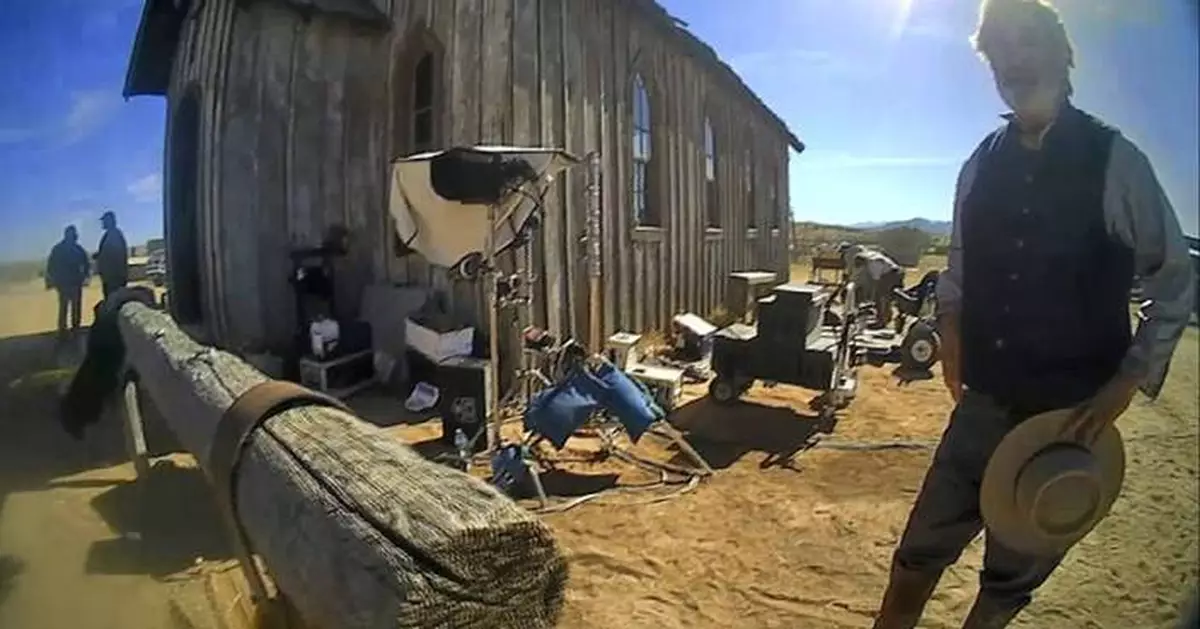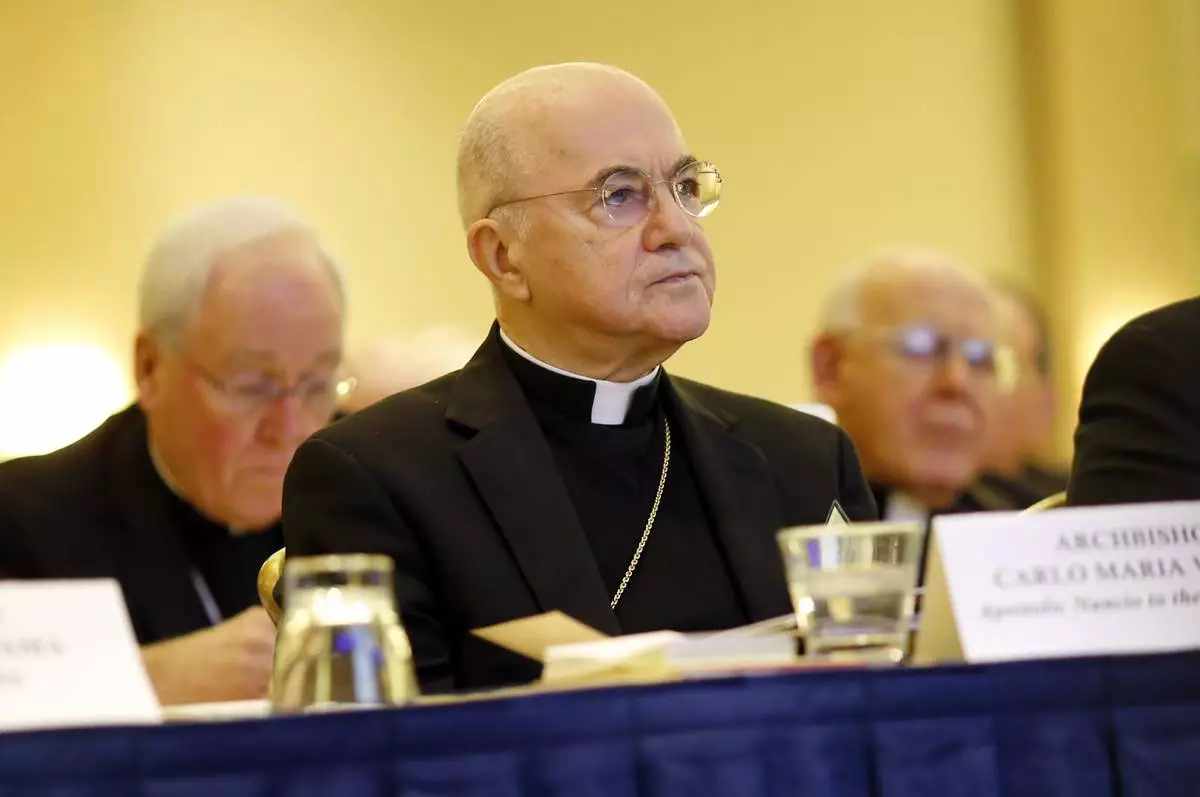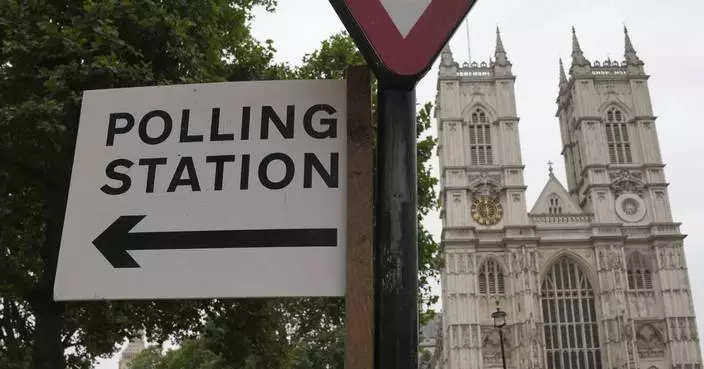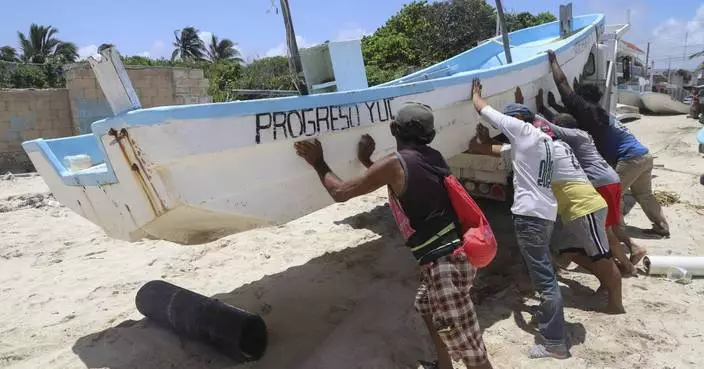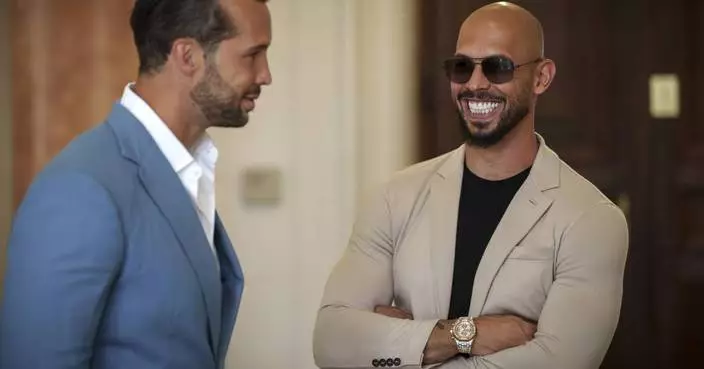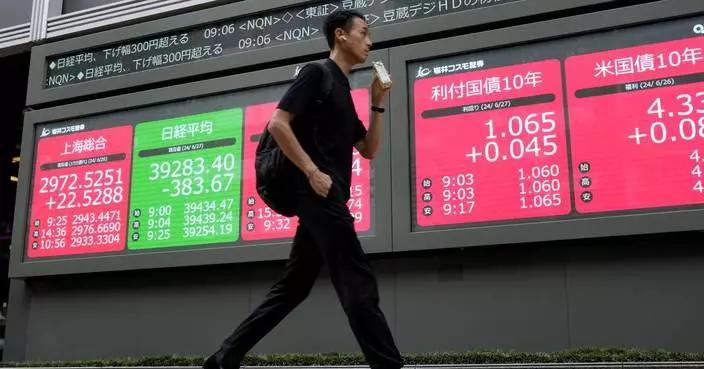SANTA FE, N.M. (AP) — Producers of the western movie “Rust” may have to forgo a robust economic incentive as they try to sell the film to distributors and fulfill financial obligations to the immediate family of a cinematographer who was fatally shot by Alec Baldwin during rehearsal in 2021.
New Mexico tax authorities denied an application this spring by Rust Movie Productions for incentives worth as much as $1.6 million, according to documents obtained by The Associated Press. A late July deadline for producers to appeal the decision is approaching.
Meanwhile, Baldwin is scheduled to go on trial starting next week on an involuntary manslaughter charge in Halyna Hutchins' death. The lead actor and co-producer of “Rust” was pointing a gun at Hutchins when it went off, killing her and wounding director Joel Souza.
Melina Spadone, an attorney representing the production company, said the film production tax incentive was going to be used to finance a legal settlement between producers and Hutchins' widower and son.
“The denial of the tax credit has disrupted those financial arrangements,” said Spadone, a New York- and Los Angeles-based senior counsel at Pillsbury Winthrop Shaw Pittman. She helped broker the 2022 settlement that rebooted the stalled production of “Rust” in Montana with some of the original cast and crew, including Baldwin and Souza. Filming wrapped up last year.
Terms of the settlement are confidential, but producers say finishing the film was meant to honor Hutchins' artistic vision and generate money for her young son.
Court documents indicate that settlement payments are up to a year late, as attorneys for Hutchins' widower determine “next steps” that include whether to resume wrongful death litigation or initiate new claims. Legal representatives for Matthew Hutchins did not respond to telephone and email messages seeking comment.
The prosecution of Baldwin and the film’s tax incentive application both have financial implications for New Mexico taxpayers. The Santa Fe district attorney’s office says it spent $625,000 on “Rust”-related prosecution through the end of April.
The state's film incentives program is among the most generous in the nation, offering a direct rebate of between 25% and 40% on an array of expenditures to entice movie projects, employment and infrastructure investments. As a percentage of the state budget, only Georgia pays out more in incentives.
It includes a one-time option to assign the payment to a financial institution. That lets producers use the rebate to underwrite production ahead of time, often layering rights to the rebate and future movie income into production loans.
Among the beneficiaries of the rebate program are the 2011 movie “Cowboys and Aliens” and the TV series “Better Call Saul,” a spinoff of “Breaking Bad.” As for current productions, New Mexico is the backdrop for a new film starring Matthew McConaughey and America Ferrera about the rescue of students in a 2018 wildfire in the town of Paradise — the most destructive in California's history.
Charlie Moore, a spokesperson for the New Mexico Taxation and Revenue Department, declined to comment specifically on the “Rust” application, citing concerns about confidential taxpayer information. Applications are reviewed for a long list of accounting and claim requirements.
During a recent 12-month period, 56 film incentive applications were approved and 43 were partially or fully denied, Moore said.
Documents obtained by AP show the New Mexico Film Office issued a memo in January to “Rust” that approved eligibility to apply for the tax incentive, in a process that involves accounting ledgers, vetting against outstanding debts and an on-screen closing credit to New Mexico as a filming location. Taxation officials have final say on whether expenses are eligible.
Spadone, the attorney for “Rust,” said the denial of the application is “surprising” and could disrupt confidence in the tax program with a chilling effect on rebate-backed loans that propel the local film industry.
Alton Walpole, a production manager at Santa Fe-based Mountainair Films who was not involved in “Rust,” said he faults the movie's creators for seemingly cutting corners on safety but officials have an obligation to review its tax credit application based on legal and accounting principles only — or risk losing major projects to other states. Movies are inherently dangerous even without firearms on set, he noted.
“They’re going to say, ‘Wait, are we going to New Mexico? They could deny the rebate,’” Walpole said. “They’re watching every penny.”
“Popular opinion? I’d say don’t give them the rebate. But legally, I think they qualified for it all,” he said.
At least 18 states have enacted measures to implement or expand film tax incentives since 2021, while some have gone in the opposite direction and sought to limit the transferability and refundability of credit.
Under Democratic Gov. Michelle Lujan Grisham, New Mexico has raised annual spending caps and expanded the film tax credit amid a multibillion-dollar surplus linked to record oil and natural gas production. Film rebate payouts were $100 million in the fiscal year ending in June 2023 and are expected to rise to nearly $272 million by 2027, according to tax agency records and the Legislature's budget and accountability office.
Democratic state Sen. George Muñoz has criticized the incentive program and asked whether taxpayers should be responsible for unforeseen expenses.
“If we’re going to do tax credits and there’s a problem on the film or the set, do they really qualify or do they disqualify themselves?” said Muñoz, chairman of the lead Senate budget writing committee.
“Rust” does not yet have a U.S. distributor as producers shop the newly completed movie at film festivals.

FILE - A musician plays a violin behind a photograph of cinematographer Halyna Hutchins during a vigil in her honor in Albuquerque, N.M., Saturday, Oct. 23, 2021. New Mexico taxation authorities in April denied an application for tax incentives worth as much as $1.6 million to Rust Movie Productions, according to documents obtained by The Associated Press. (AP Photo/Andres Leighton, File)
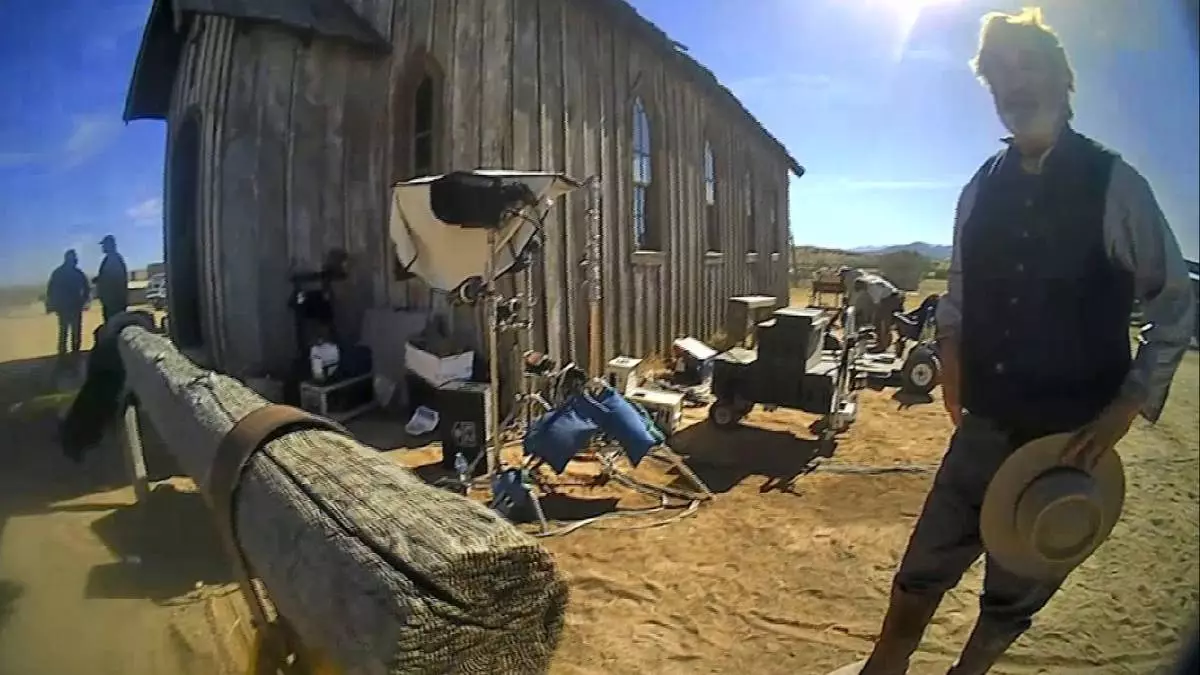
FILE - In this image taken from video released by the Santa Fe County Sheriff's Office, Alec Baldwin speaks with investigators following a fatal shooting on a movie set in Santa Fe, N.M. New Mexico taxation authorities in April denied an application for tax incentives worth as much as $1.6 million to Rust Movie Productions, according to documents obtained by The Associated Press. (Santa Fe County Sheriff's Office via AP, File)


